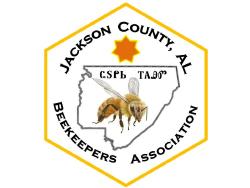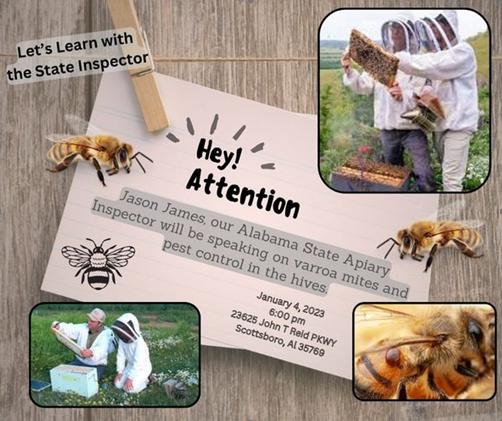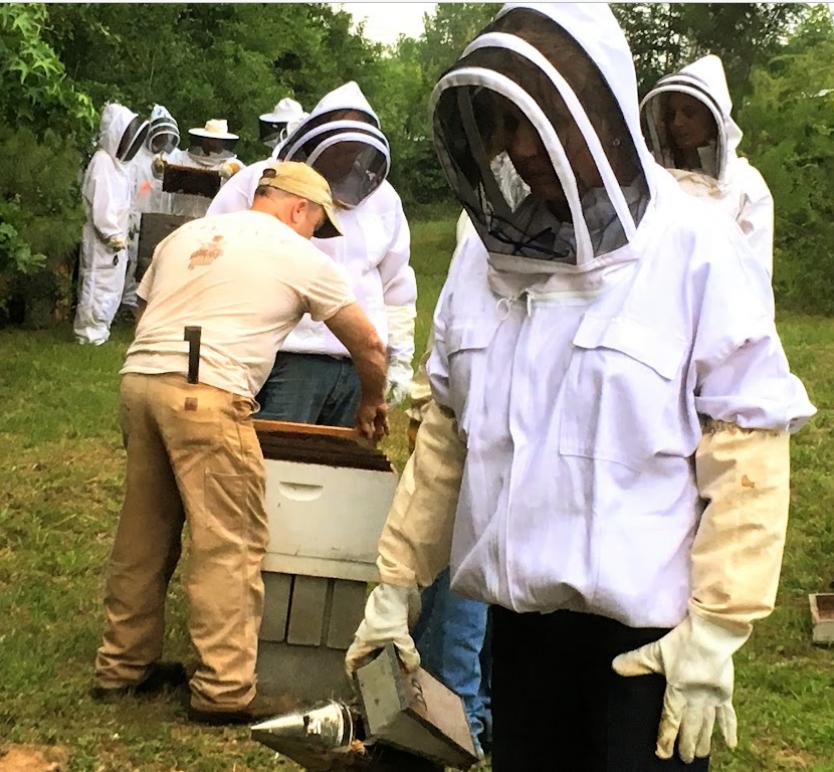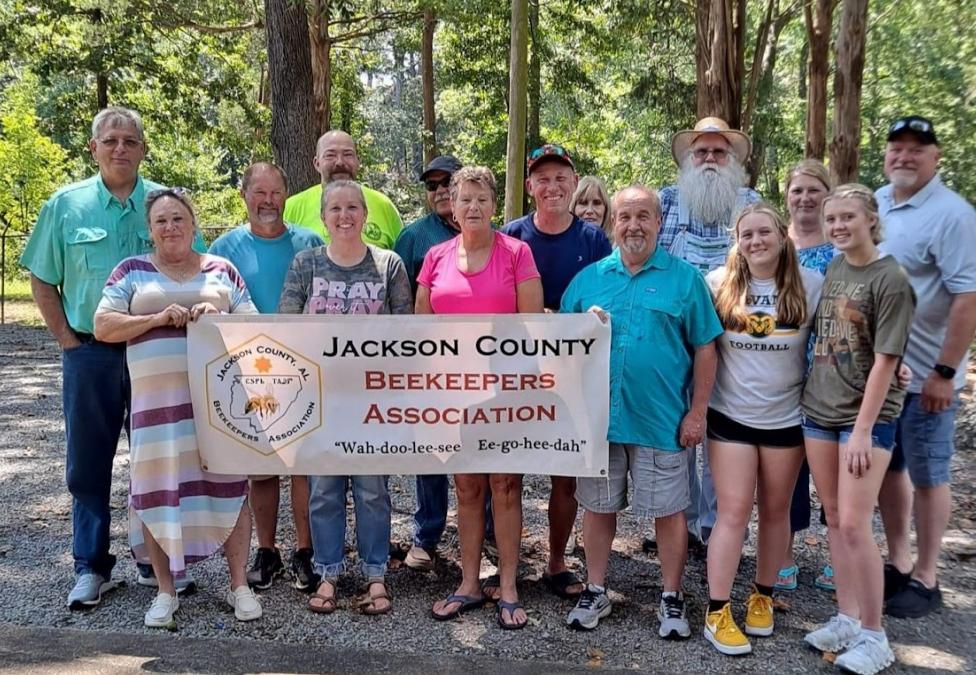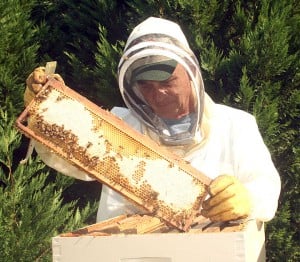Ray Latham doesn't mind the heat. In his 30 or more years of beekeeping, he knows that the hotter and more humid the day, the more active the bees are likely to be. And on this particular day as the early morning sun radiates down into the open field where the bee frame hives sit, there is no question that it's hot. "Eventually you get use to the heat," said Latham, president of the Jackson County Beekeepers Association. "Over the years I've stopped paying attention to it."
The low hum of the bees can be heard within a short distance of the hives. That's the sound that Latham likes to hear. "It lets me know they [the bees] are busy at work," he said. Of the 31 bee hives he has, some located in Larkinsville and some located near the bottom of Skyline Mountain, Latham has turned his hobby into a daily routine. "There's much to learn from the bees," he said. Regardless of a heat index nearing 100 degrees, Latham suits up in his protective gear - a white jacket, a hat with a mesh veil covering his face and long, yellow gloves to protect his hands from any unwanted stings.
The bees are active this morning, flying around at the opening of each white box, a frame that serves as hive for the honey bees, the home of the honey. Latham uses a smoker, mixed with dried straw and cotton, fanning the smoke into the area he's standing. "Doing this confuses the way the bees communicate with each other, making them less likely to strike any unwanted visitors," he said.
Careful to stand behind the frame, he uses a metal stick (hive tool) to pry open the top of the hive to show how the bee's look as they make honey. "See how the bees are moving in and out around the opening of the frame?" Latham asks. "That is how the bees keep the hive air conditioned. The heat may make them work more, but extreme heat can melt the hive. It is, after all, wax." A former member of the U.S. Army, having served one year during the Vietnam War and the other year serving in the states, Latham worked in the department of the Army at the Red Stone Arsenal in Huntsville and served as a consultant at UAH regarding foreign military sales with the Arsenal before retiring in 1999.
When retirement was a permanent option, Latham knew what he wanted to pick up full time. "Beekeeping was a big part of my childhood," he said. "I thought I would bring it back and see what I could do with it to inform other beekeepers and farmers of the trait. "With a little prying, Latham pulls out a honey bee frame, the foundation placed into the hive where the bees build their comb and cultivate the honey. The frame glistens in the morning sun. Honey is fresh in the grooves of the comb. The bees have been at work and Latham suspects he will be able to pull more honey out of the frames come September.
Beekeeping runs in Latham's family. His great grandfather, grandfather and his father were all beekeepers. Latham, a fourth generation beekeeper, carries with him the experiences of his childhood as he tended to the bee hives in much different conditions. As a child, Latham recalls following his father to the bee frames at their home in Larkinsville, not knowing what the morning's challenge with the honey bees would bring. Extracting honey was the one task he dreaded, as letting the fresh honey drip through cheese cloth seemed to take forever. Now he uses a special extractor which takes less time to remove the honey. "Modern technology has certainly changed the way I do this," said Latham.
The cost of beekeeping has increased too. "When I was a kid, we sold a quart of honey for $1 and made good money on it back then," Latham said. "Now, you have to sell it for $10 or $15 and hope you break even." Beekeeping runs year round, though the best months to see the bees work their magic are during January and February, with the best honey cultivated in June and late August. In the winter, the bees become somewhat dormant, being nourished with a sugar water mixture Latham supplies to the comb.
Latham and thirty other beekeepers in Jackson County, each person representing all ages, backgrounds and both genders hold regular meetings. Together, this group makes up a growing organization known at the Jackson County Beekeepers Association. It's a young group of men and women who come to learn about the art of beekeeping while working with farmers in the area to educate them about the importance of the honey bee. "So much of our crops depend on the honey bee," said Latham. "If it were to go extinct it would change our crops in ways we couldn't imagine. That's why doing this is so important to me." A major importance of the the honey bee comes through pollination.
"You see some crops where the vegetable is odd looking, normal size on one end and building on the other? That's a sign of lack of pollination," said Latham. Jackson County's fertile farmland is a gold mine for bee keeping, Latham said. Crops and flowers that prosper greatly in the area create some of the best honey, he said. "But the challenge is keeping the bees alive," said Latham. He and other beekeepers are posed with the challenge of mites and other insects set on eating the bees and destroying the comb.
The Jackson County Beekeepers Association meet on the first Thursday of each even numbered month. Meetings begin at 6:30 p.m. and take place at the Alabama Farmer's Federation building in Scottsboro. Members attending the meetings share tips and tricks in the bee keeping field while also listening to presentations made by beekeepers from other counties. In the future, Latham hopes the organization can branch out into the schools and work with 4-H programs and FFA programs in educating the art of beekeeping.
"This is a hobby that is both growing and dying at the same time," said Latham. "We hope to teach younger generations the ins and outs of beekeeping that way we can help them better understand just how important beekeeping is to everyday food supply and the community."
Permission to copy this article requested 8/18/2011
